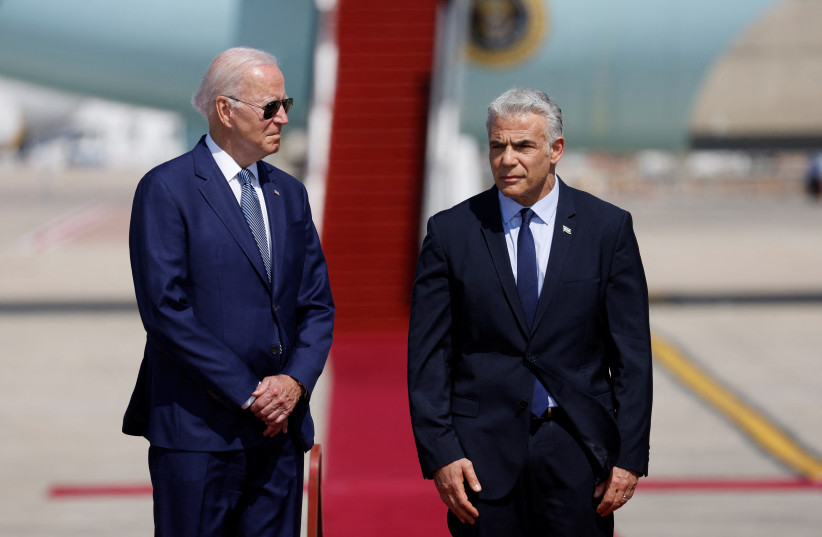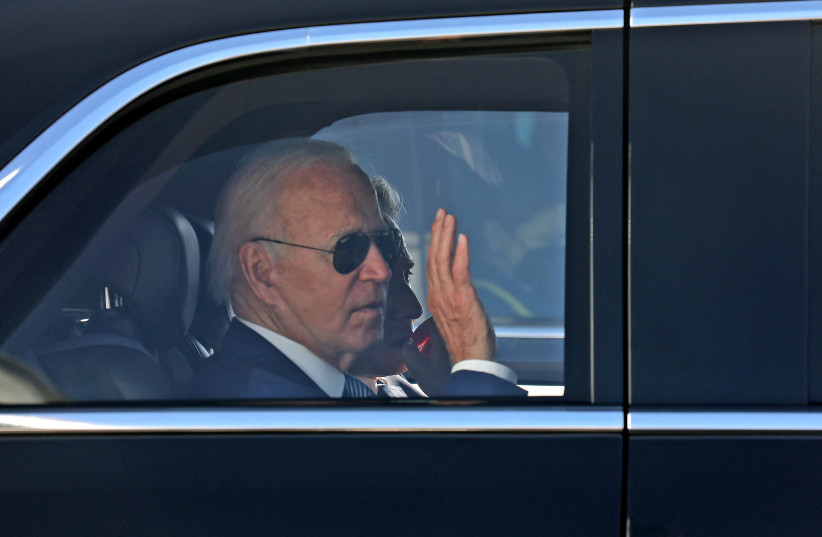Israeli intelligence has often taken action based on a partial picture of what was going on in the Islamic Republic.

Last night, US President Joe Biden said that he would use force to stop Iran from getting a nuclear weapon “as a last resort.”
That sounds a lot like what a number of Israeli officials – from former IDF chief Gadi Eisenkot to former Mossad chief Tamir Pardo – have said.
So is it the same thing? Probably not. The trick is defining what “a last resort” really means.
First, what does it not mean?
Former Mossad director Yossi Cohen, possibly current IDF Chief-of-Staff Aviv Kohavi and current Mossad Director David Barnea, might be in favor of striking even before the “last resort” moment.
No one wants to define this point exactly, but it would likely be once Israeli intelligence would show that Iran had made the political decision to go for a nuclear bomb and was three months or so away from accomplishing some of the tasks for this which it has not done to date.

Then there are former prime ministers Naftali Bennett and Benjamin Netanyahu.
They might go for an attack also three months before, but they would almost certainly go for an attack if intelligence reported that Iran was weeks away from developing a nuclear bomb or positioning forces for potential use – meaning close enough that waiting could risk missing the moment to stop it. What Biden’s statement probably means is that if US intelligence was convinced that a nuclear weapon had been developed and was on the way to being potentially deployed (within days or hours), it would then seriously consider attacking that deployment.
The difference between Israeli and US “readiness”
These differences in Israeli and US readiness to attack are not just distinct in time but in substance.
Israeli intelligence has often taken action based on a partial picture of what was going on in the Islamic Republic, despite uncertainties that might have meant it was acting prematurely.
The reason is that Jerusalem views the risks with Tehran as so high and so personal (Iranian leaders have said they want to wipe Israel off the map), that waiting for more certain confirmation sometimes is too great a risk.
In contrast, the US views the ayatollahs as a distant threat. They are not Iran’s direct target and in any case, even if Tehran developed a nuclear weapon that could reach Israel, it could take the Islamic Republic another couple of years to develop missiles that could hit the US – which is much farther away.
Next, any Israeli attack might be wider than a US attack. Jerusalem might decide that if it is rolling the dice with the Islamic Republic to try to go big, and take out several nuclear sites, along with many anti-aircraft batteries.
In the highly unlikely event that the US used force, it might be much more narrowly tailored against deploying a specific weapon, or one nuclear site where that weapon was waiting to be deployed.
Moreover, US intelligence often will reject Israeli intelligence as too uncertain or with too many holes to be relied upon for taking action.
Even former US president George W. Bush, known for being much more ready to use force than Biden, was unwilling to order a US strike on Syria’s secret nuclear reactor in 2007, whereas Israel was ready to do so, and did.
Former US president Ronald Reagan, also not known as squeamish about using force, blew his top at Israel when it took out Iraq’s nuclear reactor in 1981.
Biden and Trump
Biden has occasionally used force to take out global terrorists, especially ISIS, but has not ordered a single major operation that might risk big geopolitical consequences or a broader conflict.
The last time the US took such action was when the Trump administration ordered the assassination of Iran’s IRGC Quds Force chief Qasem Soleimani in January 2020. There was no war, but that action could have risked a much broader conflict with Iran.
Other than that, the Trump administration also took very few risks in using force and the truth is the last major new initiative of using force was during the Obama administration when it rallied a global coalition to return in force to fight ISIS in Iraq and Syria. Trump continued and increased the use of force against ISIS, but never initiated a new major offensive operation on his own.
Biden withdrew from Afghanistan and has reduced the US’s military footprint in a number of areas.
Throughout the conflict with Russia in Ukraine, Washington has been focused solely on sanctions and providing military aid to Ukraine, but never to even hint at using direct American force.
So what would probably really happen is Israeli intelligence would reach a point where it would say Iran was about to cross the line and American intelligence would dispute that finding.
This would likely mean Israel deciding to act first on its own and the US staying out of it.
Content retrieved from: https://www.jpost.com/international/article-712077.